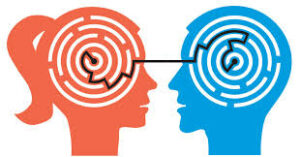What is psychodrama therapy? This is a question that many people have, but don’t know how to find the answer to. In this blog post, we will provide a comprehensive guide to psychodrama therapy. We will discuss what it is, how it works, and who can benefit from it. If you are considering this type of therapy, or if you are just curious about it, then this blog post is for you!
Contents
What Is Psychodrama Therapy?
 Psychodrama therapy is a form of therapy that uses action-based techniques to help people explore their feelings and experiences. The goal of psychodrama therapy is to help people resolve personal issues and improve their social functioning.
Psychodrama therapy is a form of therapy that uses action-based techniques to help people explore their feelings and experiences. The goal of psychodrama therapy is to help people resolve personal issues and improve their social functioning.
Psychodrama therapy is based on the belief that people are more likely to change if they are actively involved in the process. This means that people in therapy are encouraged to express their feelings and experiences through action, rather than just talking about them.
It can be used to treat a wide range of mental health issues, including anxiety, depression, trauma, and relationship problems. It is often used in combination with other therapies, such as cognitive-behavioral therapy (CBT) and psychotherapy.
What Is The Aim Of Psychodrama Therapy?
It is action-based therapy that aims to help people explore and express their emotions, where people explore issues emotionally by reenacting events from their past and addressing issues like anxiety, eating disorders, trauma, and relationship issues. It is one of the most popular and effective types of therapy.
Psychodrama therapy aims to help people explore and express their emotions. It is one of the most popular and effective types of therapy. The goal is to gain expertise in practical social interactions, such as giving speeches, interviews, or applying for jobs. The therapist will help the patient to understand their emotions and reactions to change them. This type of therapy helps people gain a greater understanding of their lives and experiences by incorporating role-playing, self-presentation, and group dynamics.
What Are The Techniques?

The techniques of psychodrama are action methods that are used to address specific issues within an individual or group. Below are a few techniques:
Doubling
One of the key techniques in psychodrama is called “doubling.” This involves the therapist taking on the role of another person in the client’s life. This can be someone important to the client, or it can be someone who the client would like to have a relationship with. The therapist then interacts with the client in this new role. This can be a very powerful experience for the client, as it allows them to explore their feelings and emotions in a safe and controlled environment.
Role Reversal
Another technique that is often used in psychodrama is called “role reversal.” This involves the client taking on the role of someone else in their life. This can be someone who they have never met, or it can be someone who they have a difficult relationship with. The therapist then helps the client to explore their feelings and emotions in this new role. This can be a very powerful experience for the client, as it allows them to explore their feelings and emotions in a safe and controlled environment.
Sociometry
Another technique is called “sociometry.” This involves asking clients to choose people with who they feel close, as well as people with who they feel distant. The therapist then uses this information to help the client understand their relationships. Sociometry can be used in group settings or one-on-one. It is often used in conjunction with other techniques, such as psychodrama, to help clients explore their relationships.
Surplus Reality
Surplus reality is the belief that there is more to reality than what we can see and touch. This belief is at the heart of psychodrama therapy. It works on the premise that we are all connected and that we can tap into this connection to help us heal.
Mirror Technique
The Mirror technique is a psychodrama technique that is used to help people explore their emotions. It involves having someone act as a mirror for another person. This can be done by having the person stand in front of the mirror or by using a prop such as a hand mirror. The therapist will often use this technique to help the client explore their feelings about themselves.
If you are considering psychodrama therapy, be sure to ask your therapist if this therapy is suitable for your condition.
How Psychodrama Can Be Helpful?
Psychodrama can be helpful in a number of ways. It may be helpful for people who have conditions that affect self-images, such as anorexia nervosa or bulimia nervosa. It can also be used to help people with depression, anxiety, post-traumatic stress disorder (PTSD), and other mental health conditions.
Psychodrama may also be helpful for people who have difficulty expressing their emotions or who have trouble communicating with others. It can help people to:
- relationship problems
- personality disorders
- identity issues
- grief
Psychodrama can also be helpful for people who have experienced trauma, as it can provide a safe space to process these experiences. It is also used to treat conditions like substance use disorder and schizophrenia.
What Are The Benefits Of Psychodrama?
Psychodrama can offer many benefits, including:
- improved communication skills
- increased self-awareness
- better coping mechanisms for dealing with difficult emotions
- greater insight into your relationships
- a stronger sense of self and identity
- improved emotional well-being
This form of psychodrama was tested in the treatment of eating disorders and discovered that it assisted people in integrating all three aspects of their personal experiences: emotional, cognitive, and behavioral.
Psychodrama therapy has been known to help patients feel more competent and effective. This therapy is often included with other types of therapies, such as behavioral therapy, gestalt therapy, hypnotherapy, and family therapy.
If you are interested in trying psychodrama, it is important to find a qualified therapist who has experience in this type of therapy. Psychodrama can be an incredibly powerful tool for healing, but it is not right for everyone. A qualified therapist will be able to assess whether or not this type of therapy is right for you.
What Are The Limitations?

The limitation is that psychodrama is not always successful. Just like with any other therapy, there is no guarantee that it will work for everyone. Each person responds differently to different types of therapies, so it is important to find them.
The beginning phase is always the hardest since you are starting from scratch with people you have never met before. You need to gain their trust and comfort them enough so they feel comfortable revealing everything to you. It can be difficult to get people to open up and trust you, especially if they have been hurt in the past.
It is important to have a trained and experienced psych dramatist leading the session. People with mental health issues should not participate in psychodrama without the permission of their therapist, as the experience could be too intense for them.
Finally, some people may find the structure of psychodrama too constraining. The therapist needs to be able to create a safe and supportive environment, while still giving the participants enough freedom to explore their emotions.
If you are considering psychodrama therapy, it is important to keep these limitations in mind. Although it isn’t a perfect solution for everyone, it may be beneficial to numerous individuals. If you have any questions or concerns, be sure to talk to your therapist about them. They will be able to help you decide if psychodrama is right for you.
Conclusion
There are three primary ways that psychodrama therapy may conclude. First, the therapist may summarize what was accomplished during the session. Second, the participants might share their thoughts and feelings about what took place during the session. And lastly, homework could be given to participants by the therapist to complete before meeting again.
It is important to note that psychodrama therapy is not a “quick fix” and may require multiple sessions to achieve desired results. However, many people who have undergone psychodrama therapy report feeling more empowered and in control of their lives after completing treatment.
If you would like more information or have any suggestions, please don’t hesitate to reach out to us at Therapy Mantra. We would be happy to help in any way we can. Our team of expert therapists is ready and can give you the guidance you might need. Please contact us as soon as possible so we can get started! You can also book an online therapy session or download our free Android or iOS app.


